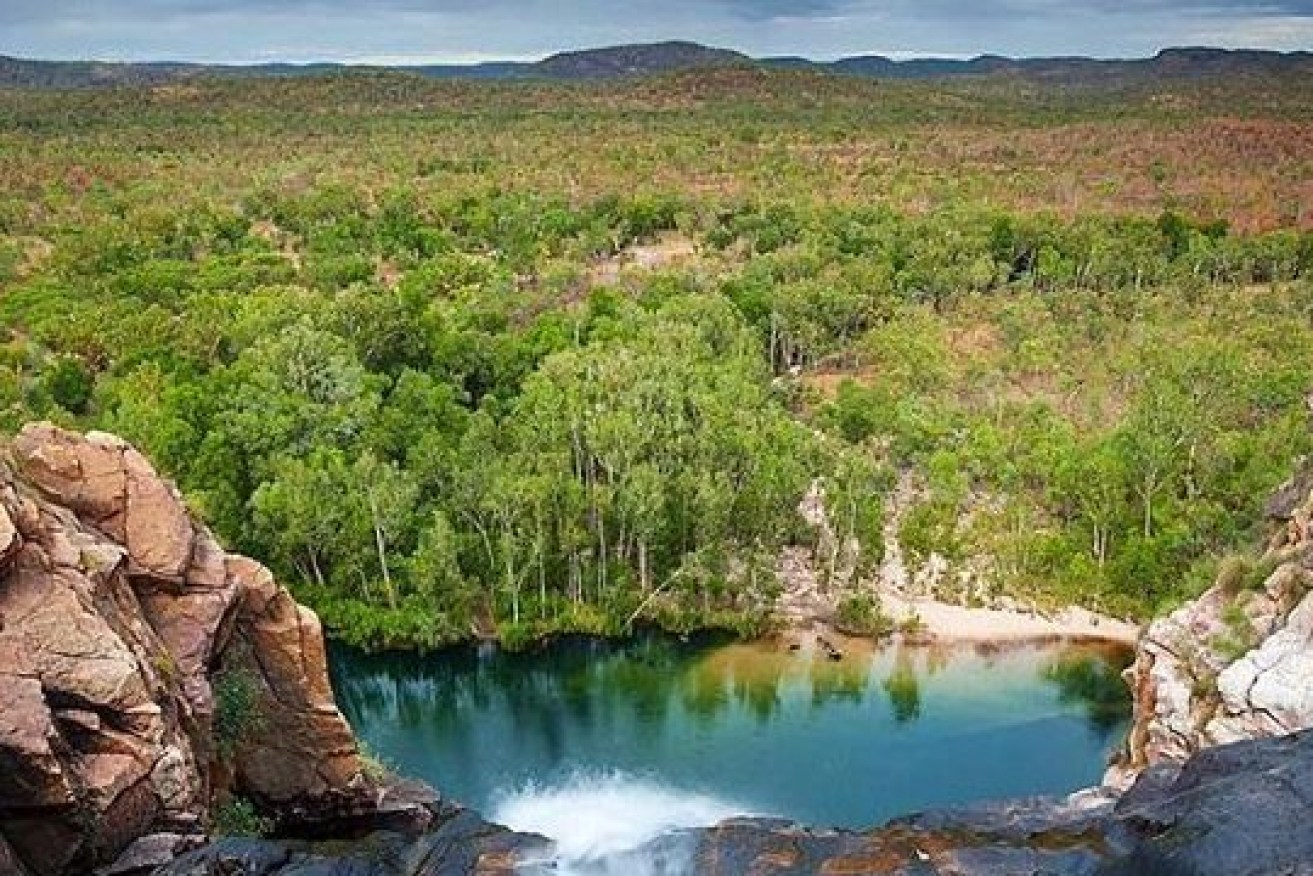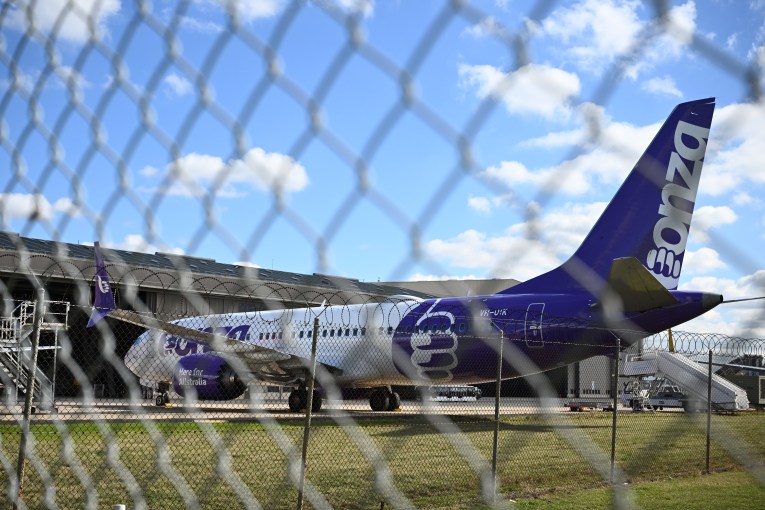Kakadu National Park’s Gunlom Falls stays shut due to potential sacred site damage

The potential damage relates to the construction of a walkway late in 2019. Photo: Heath Whiley
The body responsible for protecting Aboriginal sacred sites in the Northern Territory says it is investigating “potential offences” in the area of a popular waterfall in Kakadu National Park.
The case centres around the path to one of Kakadu’s most popular sites, the clifftop pool at Gunlom Falls, which has now been closed for more than a year.
Whether or not a sacred site near the pool was impacted during the construction of a walkway late last year continues to be the subject of investigation.
“The Aboriginal Areas Protection Authority (AAPA) confirms it is currently investigating potential offences under the Northern Territory Aboriginal Sacred Sites Act 1989 (NT) in the Gunlom Falls area,” a spokesman said.
In March, the director of national parks James Findlay told a Senate estimates committee there had been “a complaint or complaints made by at least one traditional owner, or more, about some of the work that has been done”.
“We are currently working through … the concerns they have about the works being done that might have impacted on a sacred site,” Dr Findlay said.
“At the moment, out of respect for that process and the mediation that’s hopefully going to go on around that, we have the track closed.
“Our hope is to get it open as quickly as possible, but we need to get through that process.”
A tender released for the project in 2018 said the work was to construct “a more uniform walking surface and provide a more appropriate grade for a wider range of walkers”.

Federal Environment Minister Sussan Ley has committed to meeting with Kakadu’s traditional owners. Photo: ABC News/Marco Catalano
AAPA has the power to investigate or prosecute individuals or companies for entry or work completed on sacred sites, or the most serious offence of desecration, which carries a potential jail term of up to two years or fines of more than $300,000 for a company.
In a statement the federal agency Parks Australia said: “At no point has the Aboriginal Areas Protection Authority (AAPA) suggested to Parks Australia that a sacred site has been desecrated.”
“Parks Australia refutes any claim that this has occurred and will work closely with AAPA to establish that no such action has taken place.”
The ABC has contacted Jawoyn traditional owners for comment.
The incident is one element of a deepening dispute between Kakadu’s traditional owners and the Federal Government agency.
Kakadu’s board of management, which includes 10 traditional owners and five government and industry stakeholders, passed a vote of no confidence against Park Australia’s managers last week.
Safari camp razed by fires
The sacred site in Gunlom is not the only recent issue to raise the ire of traditional owners.
A historic safari camp near Nourlangie was torched by fire last month, one of multiple properties to be razed by unchecked fires in Kakadu during recent years.
Recent complaints by the board allege that Parks Australia has mismanaged protective burns in Kakadu.
“The board is … concerned about fire management in the park and the destruction of park facilities and equipment, and structures and objects of historical and cultural significance, by fire,” said board chair Maria Lee in a statement last week.
The Anlarr (Nourlangie) camp was set up in the pioneering days of Kakadu’s joint management, and was where many of the park’s current rangers were trained.
A spokeswoman said Parks Australia undertook a fuel-reduction burn in the area of the long-disused Nourlangie Camp, which was “supervised and extinguished by Park staff”.
“Approximately 10 days following the burn, a tree on the site reignited, causing it to fall on and destroy one of the buildings,” the spokeswoman said.
Scathing letter highlights frustration
In a scathing letter to park management written on July 1 by one of Kakadu’s traditional owners, senior Bunitj man Jonathan Nadji called for a full investigation into the safari camp’s destruction.
“For the good of Kakadu National Park perhaps you could [launch] a thorough investigation into why both the historical Nourlangie safari camp and Gimbat station have been destroyed by fire,” Mr Nadji wrote.
In the letter, Mr Nadji, one of the key custodians of Ubirr Art Site, claimed that management of the park had deteriorated.
“Unfortunately, over the last 40 years myself and fellow Kakadu traditional owners, past and present, have sadly experienced a significant decline in the overall operations of Kakadu,” he wrote.
Federal Environment Minister Sussan Ley said she had committed to meeting Kakadu’s traditional owners face-to-face to try to help fix the issues after COVID-19 border restrictions were lifted.
-ABC








